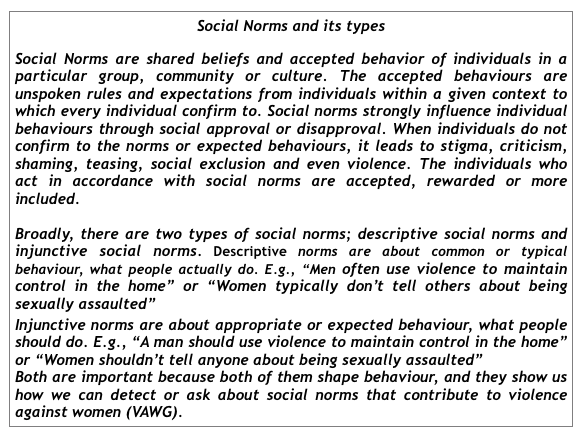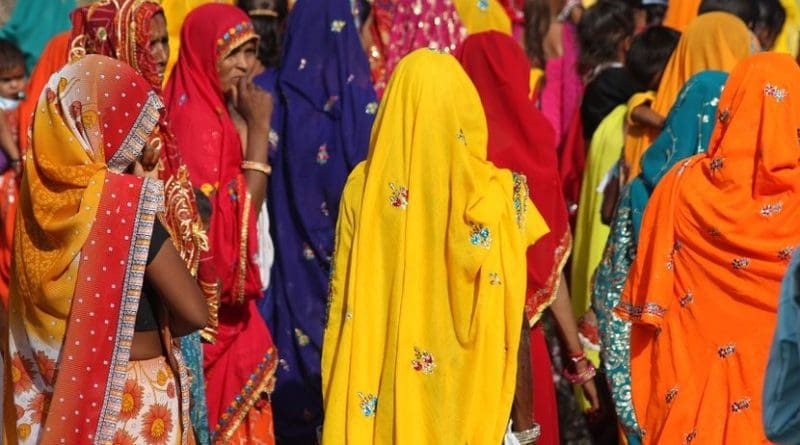Social Norms And Gender Justice – OpEd
By Oxfam India
By Rukmini Panda*
Accepted Practices-Invisible sufferings
It was a chilled winter afternoon in December on the bank on river Nagabali in Rayagada district of Odisha. I was facilitating the session on gender relation, practices and violence against women prevalent in the community with a group of 30 Dangaria Kondha (Primitive Tribal Group) women from different parts of the district of Rayagada. Women were sharing their tryst with different social practices that have been accepted as their fate.
I still remember Lachiama’s description of the practice/system of “papa pani” (sin water). Lachiama is a Dangaria Kondha tribal woman from a small village in Rayagada district. The system of papa pani as narrated by Lachiama and other women is; a husband after getting his second marriage done gives the water to the first wife by virtue of which the first wife would be allowed to stay in the same household. The first wife is put to the mercy of the husband and if he does not give that water, then she would be abandoned and thrown out of home.
The system of polygamy is accepted in tribal communities of Odisha and so as this system of “sin water”. There is another side of this system which has invisible and very strong societal acceptance is that the men practicing polygamy is considered to be the fault and sin of first wives as they fail to satisfy men as wives. The women too had internalized the system as result of their fault as wives.
The discussion on the system was painful but awakening for the women who could introspect on their life outcomes because of this system after knowing the politics of patriarchy and masculinity underneath this system.
At the end of the discussion, Lachiama jumped with courage. I still remember Lachiama’s loud scream making a promise to herself to change the destiny of thousands of women in her community by questioning this system and taking collective action to end this.
I still hear the echo of Lachiama’s voice in the blue, silent water of Nagabali creating rippling. This happened in the year 2012 and since then Lachiama has been a powerful encouragement for me to leap ahead with my endeavor to work on the issue of ending violence against women.
I met Shivaratri Patra in the year 2018 sharing her life story in one of meeting organized by me as a part of the project “Creating Spaces to Take Action against Violence against Women”.
Shivaratri is a Gond tribal woman from a small village of M.Rampur block of Kalahandi district in Odisha. Shivaratri has no formal education but she has learnt a lot from her life’s experiences. She was married off just after her puberty to a man of 17 years of age. At the age of 16, she became pregnant for first time and lost her baby. In 17 years of her marriage, she has given birth to 14 children out of which 4 children are alive today.
Shivaratri narrates, “When I told my mother not to give birth any more, I was told that as a wife, I do not have choice on this issue”. Years of suffering, bad health and loss of children taught her importance of not getting married early and fatal consequences of early, child and forced marriage.
Being a part of Creating Spaces women leaders’ team, Shivaratri is now creating awareness to end early child and forced marriage (ECFM). She has also been inducted as a member of Gond tribal committee, which is supposed to be male dominated space and structure.
I remember my friend Madhumita who had to quit her stable job for marrying a guy who was residing in a far off place. She used to be a bright student in Economics excelling all the time in examinations and had a dream to be a college teacher. Conveniently, both the families facilitated the decision of her quitting job and she had to sacrifice her career as a prerequisite for marriage. However, apparently she had a very bad marriage and faced domestic violence, which she has been enduring silently.
I resonate with the pain and struggles of Lachiama, Shivaratri and Madhumita as destiny and fate of millions of women and girls in this country.
I also resonate this with the pain and despair I am living with. Expectation from me as a homemaker easily deprives me of my pleasure of romancing with nature and playing with words as a writer. No matter how I perform as professional, these expectations make me to behave in a stipulated manner.
Lachiama, Shivratri, Madhumita and I are not standing alone in the queue. We are bound with a common thread of different social practices that confirm to social norms. The social norms expect us to behave in a certain way and we fear to deviate from these norms. These norms by default decide our choice, our mobility, our marriage, our career, our happiness and finally our life outcomes. Social norms prevent women from the fullest enjoyment of their human rights throughout their life cycle.

Social norms that reinforce gender based violence
Oxfam India through its Gender Justice theme has been implementing programs in 5 states namely Odisha, Bihar, Jharkhand, Chhattisgarh and UP to challenge social norms that reinforce violence against women and girls and promoting positive social norms.
Through grassroots programs, Oxfam India along with its local non-profit partners are identifying prevalent social norms in each location and engaging with different stakeholders to sensitize them on the issue and to take some change action. We had conducted a formative research during 2018 to understand the social norms those reinforce intimate partner violence.
The findings from the research as well as our experience of implementing programs in different geographies suggest wide acceptance of following norms. We have been addressing these norms through our programs and campaigns. Our endeavors have been to promote many more Lachiamas, Shivaratris who could not only take individual change actions but also pioneer collective actions to challenge negative social norms and promoting positive norms.
- Women should be subordinate to men
- Only men should work outside
- Girls should not go outside after evening
- All household chores are duties of girls and women
- Wife should listen faithfully to whatever husband and in-laws say
- Sex is prerogative of men
- Men should always have control over finance
- Husband can use violence if wife does not keep husband happy
- It is alright for men to have out of marriage relationship but not women
- Husband can remarry if wife is unable to give birth to male child
- Girls should not speak loudly or argue with family members
- Girls have to get sanction for making friends, using phones etc.
The complex interplay of above indicatives norms reinforces gender stereotypes and strengthens women’s subordination in families, communities and in society at large. The subordination of women leads to violation of women’s human rights.
Social Norms are inhibiting factor to achieve gender justice
The Fourth World Conference on Women was held in Beijing in 1995. The conference had adopted a declaration and platform of action for empowerment of women.
The Beijing Platform of Action recognized 12 critical areas and strategic actions for empowerment of women. It was recognized that the unjust social norms and structures prevent full and equal participation of women and leads to violation of their human rights.
Similarly, the Sustainable Development Goals being implemented since 2015 recognizes that gender equality is a prerequisite to achieve all 17-development goals under SDGs.
Gender justice is the fairness or equity through which gender equality would be achieved. Gender equality though is a cherished goal in India through different economic planning and the Constitution has elaborate provision for it, women suffer many injustices in social, economic, political and cultural spaces.
The persistent decrease in child sex ratio, huge gender gap in educational attainment especially in higher and technical education, lack of access of women to health care services, lack of or limited access to decision making spaces, very limited control over productive resources and high incidences of all forms of violence against women and girls are prevalent injustices that prevents women to fulfill their rights and contribute to the development as per their fullest capacity. The supreme law of the land and the source of all legislations, the Constitution provide for equality and prohibit any kind of injustice on the basis of sex.
Fundamental rights enshrined in the Articles from 14 to 35 have elaborate scope to achieve gender justice. The Article-14 guarantees equality before Law, equal pay for equal work and has invoked to prohibit sexual harassment at work place. Similarly, the Article 15 prohibits any kind of discrimination on the basis of sex and the Article-16 provides for equal opportunity of employment. Despite having such Constitutional provision and many Laws injustice, inequality and discrimination have been reality in the lives of women and girls. The patriarchal structures, unjust mechanism coupled with social norms prevent to attain justice and equality.
Strategies to address social norms in order to achieve gender justice
Through our grass root program as well as campaigns, we are employing different strategies to address negative social norms and promote positive social norm that would contribute to gender equality. Community mobilization, leadership development, sensitization programs, research and advocacy have been our broad strategies for grass root program to address the issue.
In all these strategies, youth, Service Providers such as government officials who are in responsibility of implementing Laws and influencers such as caste society leaders, religious leaders have been are focus for engagement.
Besides, we are implementing campaigns at both state level and national level through which we specifically engage with youth. We build their capacity so that they could identify the link between social norms, violence against women and deprivations that women are suffering from. These initiatives are being translated into some change actions, which have rippling effect in the years to come.
*Rukmini Panda is Oxfam India’s gender justice programme officer based out of Odisha.

